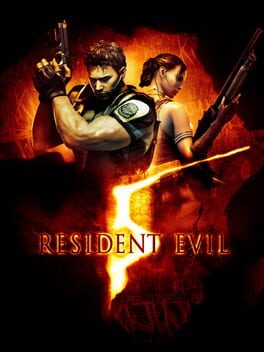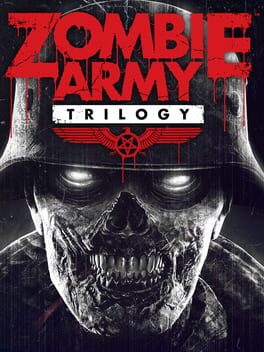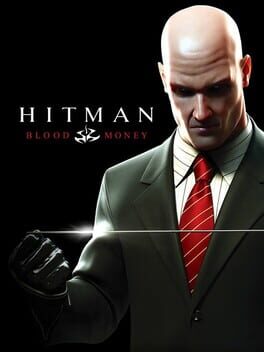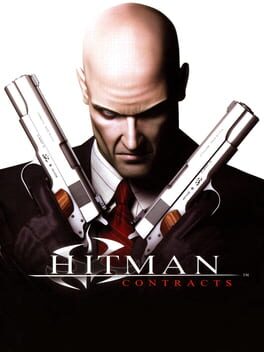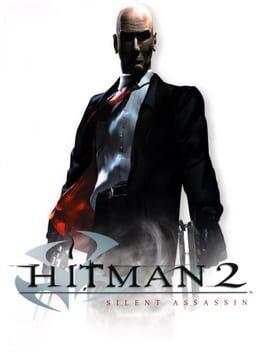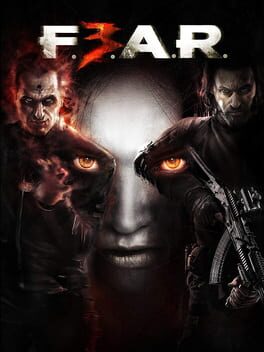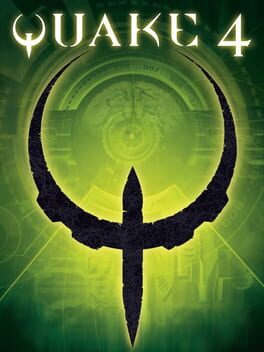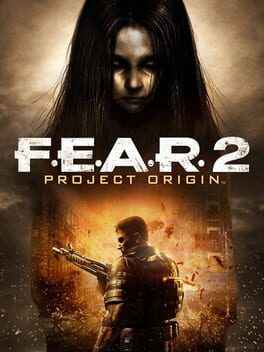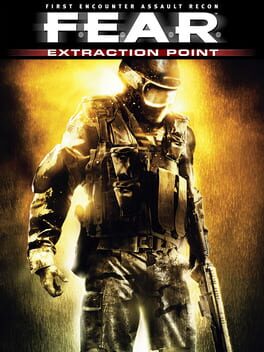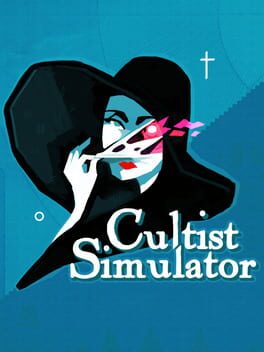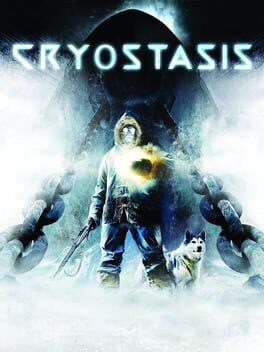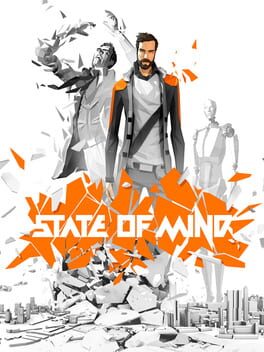BlueDemon75
A port that merges the first two classic games into one.
The idea is good, workshop support, new campaign, new survival mode, restored cut content... But it was left unfinished in an early access state for years, the development history is a complete mess, including literal unpaid interns. It has since been brought in line to a passable state but still remains rough around the edges.
Only worth a purchase on sale if you don't own the Classics yet, as it adds them to your Steam library (as separate executables) cheaper than buying them separately. Also, it's very ironic that the classic games are patched and run fine on modern systems without the need for Revolution at all.
The idea is good, workshop support, new campaign, new survival mode, restored cut content... But it was left unfinished in an early access state for years, the development history is a complete mess, including literal unpaid interns. It has since been brought in line to a passable state but still remains rough around the edges.
Only worth a purchase on sale if you don't own the Classics yet, as it adds them to your Steam library (as separate executables) cheaper than buying them separately. Also, it's very ironic that the classic games are patched and run fine on modern systems without the need for Revolution at all.
2009
Despite its reputation, I found myself enjoying Resident Evil 5, but definitely not for the same reasons I liked other RE titles. A guilty pleasure if you will.
It's a natural progression of the direction RE4 took the series, action-driven with a similarly cheesy plot. But where RE4 had some kind of charisma that allowed for the extra cheese, 5 doesn't really have that, taking itself a bit too seriously for its own good. Yet I still find myself amused by the plot, in a laughing at a bad B horror movie kind of way, especially whenever Wesker is on screen, I just crack up every time.
Do you know how games would receive stand-alone expansion packs that used the base gameplay but mixed things up a bit? RE5 feels like an AAA budget expansion pack for RE4. "Double the players, double the gun, double the fun, Co-op campaign included!" written on the box.
It uses the same gameplay mechanics, enemy archetypes, and gunplay from 4, but still, it doesn't feel as good. Plot aside, I would blame it on the level and encounter design. There aren't many memorable locations or fights in RE5, most of the big climactic encounters are set in uninteresting environments, featuring rehashed ideas already seen (and better executed) in RE4, like the big village fight at the start and the chainsaw mini-bosses. Of course, there are a few exceptions that stand out, like the licker corridor, or the underground ruin, but you get the idea why 5 feels so derivative and not as fresh as it could have been.
Despite its shortcomings, I liked Resident Evil 5, It's just not the best in the franchise, but also far from the worst.
It's a natural progression of the direction RE4 took the series, action-driven with a similarly cheesy plot. But where RE4 had some kind of charisma that allowed for the extra cheese, 5 doesn't really have that, taking itself a bit too seriously for its own good. Yet I still find myself amused by the plot, in a laughing at a bad B horror movie kind of way, especially whenever Wesker is on screen, I just crack up every time.
Do you know how games would receive stand-alone expansion packs that used the base gameplay but mixed things up a bit? RE5 feels like an AAA budget expansion pack for RE4. "Double the players, double the gun, double the fun, Co-op campaign included!" written on the box.
It uses the same gameplay mechanics, enemy archetypes, and gunplay from 4, but still, it doesn't feel as good. Plot aside, I would blame it on the level and encounter design. There aren't many memorable locations or fights in RE5, most of the big climactic encounters are set in uninteresting environments, featuring rehashed ideas already seen (and better executed) in RE4, like the big village fight at the start and the chainsaw mini-bosses. Of course, there are a few exceptions that stand out, like the licker corridor, or the underground ruin, but you get the idea why 5 feels so derivative and not as fresh as it could have been.
Despite its shortcomings, I liked Resident Evil 5, It's just not the best in the franchise, but also far from the worst.
2015
Zombie Army trilogy is the compilation (and remaster) of the first two stand-alone DLC's of Sniper Elite V2: Zombie Army 1, 2 and a new third chapter (essentially Zombie Army 3) making it a complete package. 3 for 1.
At first, I didn't think Sniper Elite's slow and methodical gameplay would fit into a zombie co-op setting, but I was pleasantly surprised. Having to deal with large hordes using rifles that have low ammo capacity and slow fire rate creates a really interesting gameplay scenario were to succeed players must keep their cool and make every shot count.
In the end, it still is a Sniper Elite zombie spinoff, so don't go in expecting L4D3, but overall it's a very competent and enjoyable game in its own right. It delivers exactly what's on the tin, nothing less, nothing more. Poping the head of nazi zombies like grapes with a sniper rifle. Repetitive? To some degree, yes, but a hell of fun anyway.
At first, I didn't think Sniper Elite's slow and methodical gameplay would fit into a zombie co-op setting, but I was pleasantly surprised. Having to deal with large hordes using rifles that have low ammo capacity and slow fire rate creates a really interesting gameplay scenario were to succeed players must keep their cool and make every shot count.
In the end, it still is a Sniper Elite zombie spinoff, so don't go in expecting L4D3, but overall it's a very competent and enjoyable game in its own right. It delivers exactly what's on the tin, nothing less, nothing more. Poping the head of nazi zombies like grapes with a sniper rifle. Repetitive? To some degree, yes, but a hell of fun anyway.
2006
Ah Hitman Blood Money. Every Hitman game up until here has refined and improved on its predecessor and Blood Money is no different. It takes everything that came before it, introduces a few things here, polishes a few things there, and boom, you have what many consider the quintessential Hitman experience.
The perfect blueprint that set in stone what the franchise is all about. From level design, the intricate sandbox, to music, and the serious but sometimes goofy tone.
The perfect blueprint that set in stone what the franchise is all about. From level design, the intricate sandbox, to music, and the serious but sometimes goofy tone.
2004
Criminally underrated, often handwaved as a spinoff or as standalone DLC for Hitman 2, Contracts is very much a fully-fledged Hitman entry and should be treated as such. One that further tweaks the formula, getting even closer to achieving the ideal hitman experience, that of large open-ended levels with lots of options.
While Hitman 2: Silent Assassin had some killer opening levels the quality start to drop in the second half. Contracts, on the other hand, is a shorter game, but remains consistent all the way through with excellent levels on top of the extra polish done to the already good mechanics inherited from Hitman 2.
Like everyone says, Hitman Contracts plays like you remember Hitman 2 did.
While Hitman 2: Silent Assassin had some killer opening levels the quality start to drop in the second half. Contracts, on the other hand, is a shorter game, but remains consistent all the way through with excellent levels on top of the extra polish done to the already good mechanics inherited from Hitman 2.
Like everyone says, Hitman Contracts plays like you remember Hitman 2 did.
Hitman 2 Silent assassin fully realizes the concepts first envisioned by Codename 47. That of a stealth game focused on disguised infiltration and (often creative) assassination. And not only does Hitman 2 pulls off that concept, but it does in tremendous style.
If Codename 47 was the foundation, Hitman 2 is the complete sprawling mansion that was built on top of it.
While the next two games, Contracts and Blood Money would further refine the formula Hitman 2 establishes a lot of mechanics and ideas that would perpetuate in the series for nearly 20 years later, still present in the rebooted Hitman trilogy.
For PC, making it run smoothly nowadays requires a bit of elbow grease, but it's well worth playing.
If Codename 47 was the foundation, Hitman 2 is the complete sprawling mansion that was built on top of it.
While the next two games, Contracts and Blood Money would further refine the formula Hitman 2 establishes a lot of mechanics and ideas that would perpetuate in the series for nearly 20 years later, still present in the rebooted Hitman trilogy.
For PC, making it run smoothly nowadays requires a bit of elbow grease, but it's well worth playing.
2000
Codename 47 was damn impressive when it was released, especially for a first title from a new studio, sporting the first use of advanced (for the time) ragdoll and cloth physics for instance. Especially for a first release from the newly formed IO Interactive.
Nowadays with 8 mainline Hitman titles Codename 47 didn't age well at all, it feels like a relic, an experimental prototype of what was to come. From that angle it's incredibly interesting, you can easily see all the foundations that would make Hitman truly unique, but in its very infancy, completely unrefined.
It's a nice trip down memory lane for diehard fans of the series but a hard pass for anyone unprepared for the jank it has to offer.
Nowadays with 8 mainline Hitman titles Codename 47 didn't age well at all, it feels like a relic, an experimental prototype of what was to come. From that angle it's incredibly interesting, you can easily see all the foundations that would make Hitman truly unique, but in its very infancy, completely unrefined.
It's a nice trip down memory lane for diehard fans of the series but a hard pass for anyone unprepared for the jank it has to offer.
2011
Fear 3 development history is a mess. Started development as Fear 2 to compete with Monolith's "Project Origin". This was before Warner Brothers got ahold of the rights to Fear and Project Origin became the actual Fear 2. And once WB took over Day 1 Studio, their version of Fear 2 would become Fear 3.
WB Games interfered a lot in the development, typical publisher meddling with what I call the "Modern Warfare Effect", It happened to Dead Space 3, and it happened here. WB demanded that the game have some form of multiplayer and for it to have less horror and more action, in a foolish attempt to chase the Call of Duty audience.
Those demands clashed with what the team had already done, resulting in sudden design changes, complete story rewrites, intense crunch, several resignations, three delays, etc. All of that culminated in the disjointed list of levels strung together by what feels like an unfinished and aimless draft.
Somehow Fear 3 achieved the feat of feeling even more watered down than Fear 2 did. The gunplay itself is decent, but the essence of what makes Fear, Fear, is simply not here. It's a linear shooting gallery with slow motion and coop.
WB Games interfered a lot in the development, typical publisher meddling with what I call the "Modern Warfare Effect", It happened to Dead Space 3, and it happened here. WB demanded that the game have some form of multiplayer and for it to have less horror and more action, in a foolish attempt to chase the Call of Duty audience.
Those demands clashed with what the team had already done, resulting in sudden design changes, complete story rewrites, intense crunch, several resignations, three delays, etc. All of that culminated in the disjointed list of levels strung together by what feels like an unfinished and aimless draft.
Somehow Fear 3 achieved the feat of feeling even more watered down than Fear 2 did. The gunplay itself is decent, but the essence of what makes Fear, Fear, is simply not here. It's a linear shooting gallery with slow motion and coop.
2005
Honestly surprised Quake 4 doesn't get talked about more often in FPS discussions. Just a really solid fun combat loop.
Quake 4 has its shortcomings, namely, Raven software felt the need to compete with the likes of halo and half-life 2 so there are some boring vehicle and turret sections from time to time, but it doesn't ruin the game. It starts off slow, but once you hit the Stroggification Facility it kick-ups a gear, and the flow of levels and combat improves a lot.
Use "Quake 4 tweaker" to get it running smoothly on a modern machine. There's a link to it in Q4's PCGaming Wiki page.
Quake 4 has its shortcomings, namely, Raven software felt the need to compete with the likes of halo and half-life 2 so there are some boring vehicle and turret sections from time to time, but it doesn't ruin the game. It starts off slow, but once you hit the Stroggification Facility it kick-ups a gear, and the flow of levels and combat improves a lot.
Use "Quake 4 tweaker" to get it running smoothly on a modern machine. There's a link to it in Q4's PCGaming Wiki page.
Decent shooter but completely mediocre when measured against his predecessor. It has some good moments but still feels like a hollow and watered-down Fear.
The story is poor and if you are paying attention filled with plot holes while simultaneously ruining/ignoring plot points and characters that made the original game unique.
The story is poor and if you are paying attention filled with plot holes while simultaneously ruining/ignoring plot points and characters that made the original game unique.
F.E.A.R. Extraction point is a decent expansion for the base game. If you want more FEAR but don't vibe with the sequels this is what you are looking for.
It amps up the action, shootouts are way more numerous and frequent, however, this does take its toll on the pacing. The "fatigue" sets in way faster, t makes the game feels longer than it is.
My personal gripe with Extraction Point though is the story. It acts as a direct sequel to the original ending, but to do so it undoes a lot of weighty events just for the sake of explaining away why there are still cloned soldiers around to kill. And yet, despite the effort and retcons, it literally goes nowhere with it.
It's more classic FEAR and that's good, but disappointing in some regards.
It amps up the action, shootouts are way more numerous and frequent, however, this does take its toll on the pacing. The "fatigue" sets in way faster, t makes the game feels longer than it is.
My personal gripe with Extraction Point though is the story. It acts as a direct sequel to the original ending, but to do so it undoes a lot of weighty events just for the sake of explaining away why there are still cloned soldiers around to kill. And yet, despite the effort and retcons, it literally goes nowhere with it.
It's more classic FEAR and that's good, but disappointing in some regards.
2018
Cultist Simulator is absolutely a genius game. And it is absolutely not for everyone, it appeals to a very specific audience. And no, it's not one of those ironic simulator games about building Kool-Aid tanks.
If I had to quickly summarize:
It's a game about maintaining a balancing act, spinning a dozen plates while taking risks and experimenting to further your goal of supernatural ascension, with the ever-looming presence of catastrophic failure in the back of your mind.
I can easily identify all the aspects that would make someone hate this game with a passion. Obscured mechanics, ticking timers, and especially the lack of clarity. Most first-time runs of Cultist Simulator will be confusing and end abruptly by dying of overwhelming dread or by going mad within 30 minutes. And that's by design.
It hands the player a few cards, some action tiles, and says:
Do you want to run a cult? Want to know how? Well, combine some cards and figure it out yourself. Good luck.
Of course, the game teaches you the basics, but it doesn't explain anything in detail, if at all. And when it does, it is in cryptic sentences and keywords, with mechanics obscured behind the combination of cards and verb tiles. On the surface, it all seems overwhelming, or even unfair, but it's really not. The game does give you (veiled) information, not enough to hold your hand, but enough to figure things out if you are paying attention.
However, If you have no patience to read and put some thought into what you are doing, it will be a very frustrating game. Mindlessly clicking through things will lead to dumb mistakes that will send your run head first down the eldritch toilet.
Which was exactly what happened to me when I first played.
But Cultist Simulator snared me, even with the initial frustrations the game tapped into some kind of obsessive behavior I didn't even know I had. The allure of possibility and the desire to learn more was strong enough to push me forward, to the point I took pen and paper and started writing things down. Combinations of cards, aspects, negative effects, and the ways I found to combat them. In time my desk slowly started to get messy, creating an oddly immersive connection to the game board and the overall vibe of uncovering the occult.
And that's when everything clicked.
If I wanted to progress I would at least need to understand the game's lore, or at least what each symbol represented and was capable of. It wasn't gonna be like other games were to succeed I just needed an abstract intelligence stat level up. Understanding, planning, and then finding ways to manipulate that knowledge to my advantage was the key to progress.
If the game did explain each and every mechanic in detail like so many people criticize it, Cultist Simulator wouldn't be nearly as engaging. Taking risks, making mistakes, and having breakthrough "AHA!" moments are the core experience of this game.
What at first looked like nonsensical flavor texts started to make sense, I figured out what the symbols and keywords meant, how I could use them, and how aspects feed into each other. Mechanics like the aforementioned Dread that felt like it relied solely on RNG to decide whether or not it would kill my run turned out to not be the case at all. I just couldn't see past frustrations before.
And just like that when I least expected it, I was easily destroying police evidence, summoning demons to teach me foreign languages, murdering my day job supervisor, reanimating his corpse with necromancy, funding expedition parties across the world to steal artifacts, biding at the auction house on cursed texts, and painting masterpieces with arcane pigments. All while maintaining health, funds, fascination, notoriety, and dread in check.
In no time I had all the tools I needed. I sewed their severed bodies onto mine. The feast of the True-Birth had started. Swollen with the lives of others, I returned from the Tricuspid Gate. My flesh reborn. I have become a Long, favored by the Grail. I shaw not grow old.
If I had to quickly summarize:
It's a game about maintaining a balancing act, spinning a dozen plates while taking risks and experimenting to further your goal of supernatural ascension, with the ever-looming presence of catastrophic failure in the back of your mind.
I can easily identify all the aspects that would make someone hate this game with a passion. Obscured mechanics, ticking timers, and especially the lack of clarity. Most first-time runs of Cultist Simulator will be confusing and end abruptly by dying of overwhelming dread or by going mad within 30 minutes. And that's by design.
It hands the player a few cards, some action tiles, and says:
Do you want to run a cult? Want to know how? Well, combine some cards and figure it out yourself. Good luck.
Of course, the game teaches you the basics, but it doesn't explain anything in detail, if at all. And when it does, it is in cryptic sentences and keywords, with mechanics obscured behind the combination of cards and verb tiles. On the surface, it all seems overwhelming, or even unfair, but it's really not. The game does give you (veiled) information, not enough to hold your hand, but enough to figure things out if you are paying attention.
However, If you have no patience to read and put some thought into what you are doing, it will be a very frustrating game. Mindlessly clicking through things will lead to dumb mistakes that will send your run head first down the eldritch toilet.
Which was exactly what happened to me when I first played.
But Cultist Simulator snared me, even with the initial frustrations the game tapped into some kind of obsessive behavior I didn't even know I had. The allure of possibility and the desire to learn more was strong enough to push me forward, to the point I took pen and paper and started writing things down. Combinations of cards, aspects, negative effects, and the ways I found to combat them. In time my desk slowly started to get messy, creating an oddly immersive connection to the game board and the overall vibe of uncovering the occult.
And that's when everything clicked.
If I wanted to progress I would at least need to understand the game's lore, or at least what each symbol represented and was capable of. It wasn't gonna be like other games were to succeed I just needed an abstract intelligence stat level up. Understanding, planning, and then finding ways to manipulate that knowledge to my advantage was the key to progress.
If the game did explain each and every mechanic in detail like so many people criticize it, Cultist Simulator wouldn't be nearly as engaging. Taking risks, making mistakes, and having breakthrough "AHA!" moments are the core experience of this game.
What at first looked like nonsensical flavor texts started to make sense, I figured out what the symbols and keywords meant, how I could use them, and how aspects feed into each other. Mechanics like the aforementioned Dread that felt like it relied solely on RNG to decide whether or not it would kill my run turned out to not be the case at all. I just couldn't see past frustrations before.
And just like that when I least expected it, I was easily destroying police evidence, summoning demons to teach me foreign languages, murdering my day job supervisor, reanimating his corpse with necromancy, funding expedition parties across the world to steal artifacts, biding at the auction house on cursed texts, and painting masterpieces with arcane pigments. All while maintaining health, funds, fascination, notoriety, and dread in check.
In no time I had all the tools I needed. I sewed their severed bodies onto mine. The feast of the True-Birth had started. Swollen with the lives of others, I returned from the Tricuspid Gate. My flesh reborn. I have become a Long, favored by the Grail. I shaw not grow old.
2009
Cryostasis: Sleep of reason presents excellent lessons in how to meticulously craft an incredibly immersive atmosphere. Immersive is a buzzword thrown around carelessly today, but I really mean it. It's sound design, levels, and non-linear storytelling in a unique and unconventional scenario. It all just clicks into place to convey a chilling atmosphere of dread and despair.
And it's a shame because it is genuinely a fantastic game that remains forgotten to the tides of time in a nebulous legal limbo.
[ Full review at https://bluedemonarchive.blogspot.com/2021/08/review-cryostasis-sleep-of-reason.html ]
And it's a shame because it is genuinely a fantastic game that remains forgotten to the tides of time in a nebulous legal limbo.
[ Full review at https://bluedemonarchive.blogspot.com/2021/08/review-cryostasis-sleep-of-reason.html ]
2011
Homefront works best when it stops pretending it's some kind of gritty war drama and fully commits to being the schlocky shooting gallery it wants to be.
Sadly out of seven missions, only three are decent. Mechanically stiff, it is not enjoyable enough to wade through the first five chapters.
If you are craving that 7th gen war schlock, there are plenty of decent alternatives to go through first.
[ Full review at https://bluedemonarchive.blogspot.com/2022/02/review-homefront.html ]
Sadly out of seven missions, only three are decent. Mechanically stiff, it is not enjoyable enough to wade through the first five chapters.
If you are craving that 7th gen war schlock, there are plenty of decent alternatives to go through first.
[ Full review at https://bluedemonarchive.blogspot.com/2022/02/review-homefront.html ]
2018
State of Mind is like a scattershot of common tropes associated with the cyberpunk setting. And if you start to pick the story apart you will definitely find some dead-end threads left unexplored.
But despite a few shortcomings, it's a worthwhile experience for those interested in a slower narrative game and fans of cyberpunk stories with bleak, but relevant themes for the modern age.
If you are of the "gameplay first, story second" school of thought maybe skip this one a pass.
[ Full review at https://bluedemonarchive.blogspot.com/2022/02/review-state-of-mind.html ]
But despite a few shortcomings, it's a worthwhile experience for those interested in a slower narrative game and fans of cyberpunk stories with bleak, but relevant themes for the modern age.
If you are of the "gameplay first, story second" school of thought maybe skip this one a pass.
[ Full review at https://bluedemonarchive.blogspot.com/2022/02/review-state-of-mind.html ]

